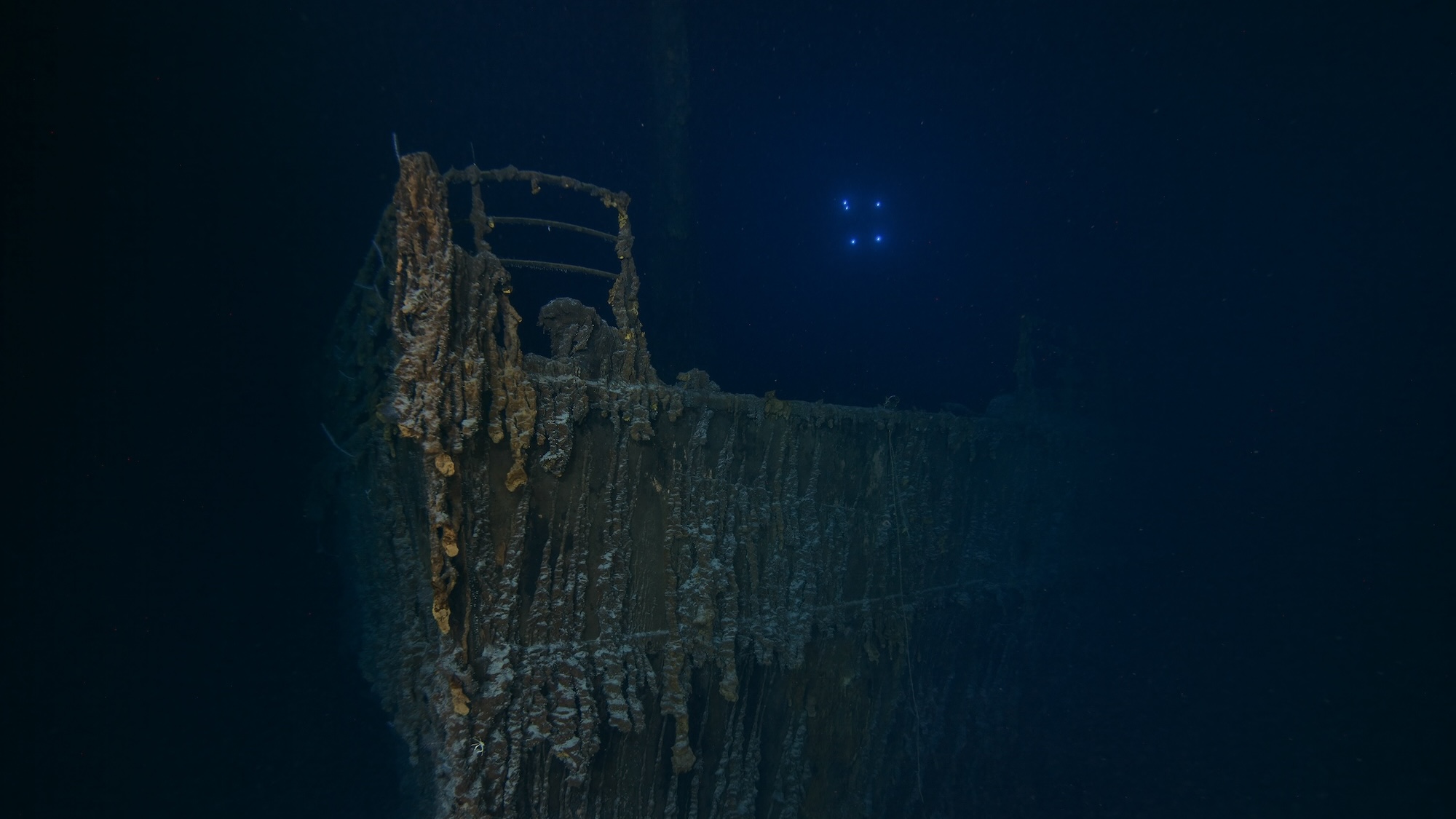

New, high-definition images offer unexpected finds and unfortunate updates at the site of the RMS Titanic’s final resting place. Released on September 2, the photos come the first Imaging and Research Expedition undertaken by the ship’s salvor-in-possession company, RMS Titanic, Inc. in over 14 years. Notably, the documentation confirms one of the vessel’s most iconic sections has succumbed to 112 years spent in the frigid North Atlantic waters at a crushing depth of 12,500-feet-below the ocean’s surface.
More than 1,500 passengers and crew aboard the Titanic died while en route to New York City from Southampton, UK, during the famous tragedy on April 15, 1912. Although its exact whereabouts were a mystery for years, an expedition led by Robert Ballard confirmed the luxury cruise liner’s exact location in 1985. Since then, numerous explorers, experts, and tourists have made the frequently dangerous journey back down to document the historic archeological site. In 1994, a US federal court granted sole “salvor-in-possession” rights to RMS Titanic, Inc., which designated the company as the only organization legally permitted to recover artifacts from the wreck. The group and its affiliates have now overseen eight expeditions, the most recent of which took place over 20 days in July.
[Related: Staggering 3D scan of the Titanic shows the wreck down to the millimeter.]
According to an announcement on Monday, researchers amassed over “2 million of the highest resolution images and video to date” during their latest exploration. They also successfully mapped out the ship and its debris field using LIDAR, sonar, as well as a hyper magnetomete—a device used to zero-in on metallic objects such as ship wreckage. It was with these tools that explorers managed to relocate one historic relic in particular that many thought was long gone—a 2-foot-tall, bronze statue known as the Diana of Versailles. According to Titanic researcher James Penca, the Diana of Versailles served as a centerpiece in the first-class passenger lounge widely considered to be the most beautiful and detailed space on the ship.

“But unfortunately, when Titanic split in two during the sinking, the lounge got ripped open. And in the chaos and the destruction, Diana got ripped off her mantle and she landed in the darkness of the debris field,” Penca told the BBC on August 1. First (and last) spotted during a 1986 expedition, many experts theorized sediment or ocean current-scattered debris had since obscured the bronze bust. To actually find it once again half-buried on the ocean floor “was like finding a needle in a haystack,” Penca explained.
The new discoveries also highlighted the ship’s increasingly fragile remains. One of theTitanic wreckage’s most recognizable features has long been the railing surrounding the Bow’s forecastle deck—a section also made famous in the 1997 film’s “King of the World” scene by James Cameron. Based on images taken over the summer, however, a large section of the structure has broken off and fallen from the port side prow. Given previous expeditions’ documentation, the team says this must have occurred as recently as 2022.

“The discovery of the statue of Diana was an exciting moment. But we are saddened by the loss of the iconic Bow railing and other evidence of decay,” RMS Titanic, Inc. Director of Collections Tomasina Ray said in Monday’s announcement.
Time is certainly not on the side of the preservationists. Given the harsh ocean conditions and the destructive capabilities of metal-eating bacteria, some observers believe the vast majority of the Titanic could decay within only a few decades. That said, Ray explained that both the Diana of Versailles’ reemergence and the railing’s disappearance “has only strengthened our commitment to preserving Titanic‘s legacy.”
